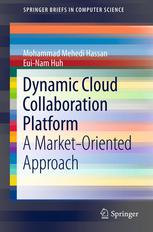

Most ebook files are in PDF format, so you can easily read them using various software such as Foxit Reader or directly on the Google Chrome browser.
Some ebook files are released by publishers in other formats such as .awz, .mobi, .epub, .fb2, etc. You may need to install specific software to read these formats on mobile/PC, such as Calibre.
Please read the tutorial at this link: https://ebookbell.com/faq
We offer FREE conversion to the popular formats you request; however, this may take some time. Therefore, right after payment, please email us, and we will try to provide the service as quickly as possible.
For some exceptional file formats or broken links (if any), please refrain from opening any disputes. Instead, email us first, and we will try to assist within a maximum of 6 hours.
EbookBell Team

0.0
0 reviewsPresent trends in cloud providers (CPs) capabilities have given rise to the interest in federating or collaborating clouds, thus allowing providers to revel on an increased scale and reach more than that is achievable individually. Current research efforts in this context mainly focus on building supply chain collaboration (SCC) models, in which CPs leverage cloud services from other CPs for seamless provisioning. Nevertheless, in the near future, we can expect that hundreds of CPs will compete to offer services and thousands of users will also compete to receive the services to run their complex heterogeneous applications on a cloud computing environment. In this open federation scenario, existing collaboration models (i.e. SCC) are not applicable since they are designed for static environments where a-priori agreements among the parties are needed to establish the federation.
To move beyond these shortcomings, Dynamic Cloud Collaboration Platform establishes the basis for developing dynamic, advanced and efficient collaborative cloud service solutions that are scalable, high performance, and cost effective. We term the technology for inter-connection and inter-operation of CPs in open cloud federation as Dynamic Cloud Collaboration (DCC), in which various CPs (small, medium, and large) of complementary service requirements will collaborate dynamically to gain economies of scale and enlargements of their capabilities to meet quality of service (QoS) requirements of consumers. In this context, this book addresses four key issues - when to collaborate (triggering circumstances), whom to collaborate with (suitable partners), how to collaborate (architectural model), and how to demonstrate collaboration applicability (simulation study). It also provides solutions, which are effective in real environments.